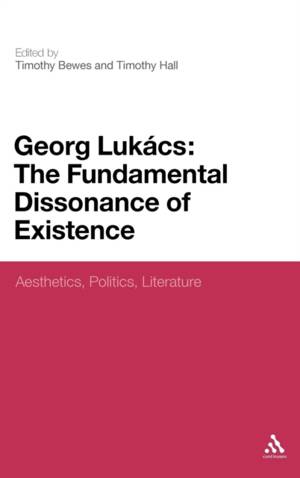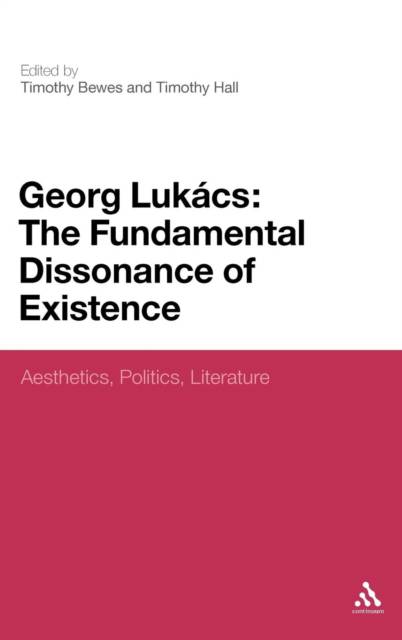
Bedankt voor het vertrouwen het afgelopen jaar! Om jou te bedanken bieden we GRATIS verzending (in België) aan op alles gedurende de hele maand januari.
- Afhalen na 1 uur in een winkel met voorraad
- In januari gratis thuislevering in België
- Ruim aanbod met 7 miljoen producten
Bedankt voor het vertrouwen het afgelopen jaar! Om jou te bedanken bieden we GRATIS verzending (in België) aan op alles gedurende de hele maand januari.
- Afhalen na 1 uur in een winkel met voorraad
- In januari gratis thuislevering in België
- Ruim aanbod met 7 miljoen producten
Zoeken
Georg Lukacs
The Fundamental Dissonance of Existence: Aesthetics, Politics, Literature
Timothy Bewes, Timothy Hall
Hardcover | Engels
€ 296,95
+ 593 punten
Omschrijving
The end of the Soviet period, the vast expansion in the power and influence of capital, and recent developments in social and aesthetic theory, have made the work of Hungarian Marxist philosopher and social critic Georg Lukcs more vital than ever. The very innovations in literary method that, during the 80s and 90s, marginalized him in the West have now made possible new readings of Lukcs, less in thrall to the positions taken by Lukcs himself on political and aesthetic matters. What these developments amount to, this book argues, is an opportunity to liberate Lukcs's thought from its formal and historical limitations, a possibility that was always inherent in Lukcs's own thinking about the paradoxes of form. This collection brings together recent work on Lukcs from the fields of Philosophy, Social and Political Thought, Literary and Cultural Studies. Against the odds, Lukcs's thought has survived: as a critique of late capitalism, as a guide to the contradictions of modernity, and as a model for a temperament that refuses all accommodation with the way things are.
Specificaties
Betrokkenen
- Auteur(s):
- Uitgeverij:
Inhoud
- Aantal bladzijden:
- 256
- Taal:
- Engels
Eigenschappen
- Productcode (EAN):
- 9781441157904
- Verschijningsdatum:
- 12/05/2011
- Uitvoering:
- Hardcover
- Formaat:
- Genaaid
- Afmetingen:
- 156 mm x 234 mm
- Gewicht:
- 535 g

Alleen bij Standaard Boekhandel
+ 593 punten op je klantenkaart van Standaard Boekhandel
Beoordelingen
We publiceren alleen reviews die voldoen aan de voorwaarden voor reviews. Bekijk onze voorwaarden voor reviews.









